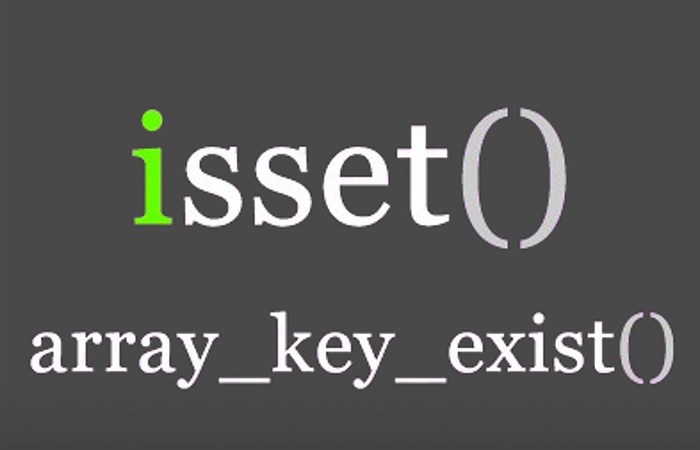Why I Prefer isset($array[$key]) Over array_key_exists($key, $array) in PHP

When it comes to checking for the existence of a key in an array, PHP offers several options. Two of the most commonly used are isset($array[$key]) and array_key_exists($key, $array). While both serve the same basic purpose, they have key differences, especially when it comes to performance—particularly for large datasets.
The Performance Breakdown
At a high level, both functions check if a key exists within an array. However, the way they operate under the hood is quite different:
array_key_exists(): Performs a linear search through the array. This results in a time complexity of O(n), meaning that as the number of elements in the array grows, the time taken to search increases linearly.isset(): On the other hand, uses a hash table lookup, which offers O(1) time complexity. This means that no matter the size of the array, the search will, on average, take a constant amount of time.
For small arrays, the performance difference is negligible. However, when working with large datasets, this distinction becomes critical.
An Important Edge Case: Null Values
There is, however, an important distinction between these two functions that you should be aware of:
isset()will returnfalseif the key exists but its value isnull. This means that, in cases where you need to confirm the existence of a key regardless of its value,isset()alone may not be enough.
For instance:
$search_array = array('first' => null, 'second' => 4);
// returns false
isset($search_array['first']);
// returns true
array_key_exists('first', $search_array);Handling the Edge Case
To account for this edge case where a key might exist with a null value (if you have to), you can combine both isset() and array_key_exists() to cover all scenarios:
if (isset($array[$key]) || array_key_exists($key, $array)) {
// The key exists, even if the value is null
}This way, you can take advantage of the performance benefits of isset() while ensuring that null values are handled appropriately.
Note: This solution is necessary only if there’s a possibility that some keys may have null values.
Real-World Example: Why Performance Matters
Now let’s take a look at how this plays out in a real-world scenario.
In one of my recent projects, I had to check for the existence of keys in an array containing over 650,000 elements. Initially, I used array_key_exists() to perform the checks, and the execution time was a whopping 175 seconds.
Curious about optimization, I replaced array_key_exists() with isset(). The result? The execution time dropped dramatically to just 10 seconds.
This massive performance gain is a direct result of the differences in time complexity between the two functions. In high-performance or resource-intensive applications, this kind of optimization can make a big difference.
When to Use array_key_exists()
Despite its slower performance, array_key_exists() still has its place in PHP development. Specifically, you should use it when:
- You need to check for the existence of a key even when the value is
null.
In most other cases, isset() is the better option due to its speed.
Conclusion: Choose isset() for Efficiency
In PHP, small choices like which function to use for checking array keys can have a big impact on performance. While array_key_exists() is useful for certain edge cases, isset() provides a significant speed boost and is the ideal choice in the majority of scenarios—especially when working with large datasets.
Next time you’re working on a performance-critical PHP application, consider replacing array_key_exists() with isset() where possible, and always keep an eye on those null values.
Have you experienced performance issues with large arrays in PHP? How do you handle key checks in your projects? Let me know in the comments!








